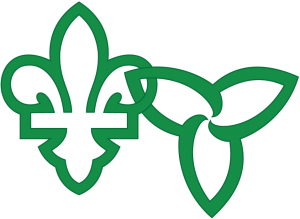Visit the Monuments to la francophonie


La Cité collégiale
Monument location:
Collège La Cité
801 Aviation Parkway
Ottawa, Ontario K1K 4R3
Unveiled: May 31, 2007
Bernard Grandmaître, Honorary President of Monuments de la francophonie d’Ottawa
Andrée Lortie, President of La Cité collégiale
This project was carried out by District 1 of Richelieu International.
The Richelieu Society was founded in Ottawa in 1944. It was renamed the Richelieu International in 1955 and incorporated 275 service clubs in seven districts and in a dozen francophone countries. The Society promotes la Francophonie and francophone culture through sociocultural and humanitarian efforts and youth involvement. District 1 has 20 clubs that cover Ottawa, Outaouais and eastern Ontario.
La Cité collégiale opened in 1990 and has already welcomed over a hundred thousand students. It is the first and largest French-language community college for applied arts and technology in Ontario. It is also the twenty-third community college in the province. La Cité aims to respond to the post-secondary educational needs of the 200 000 francophones in eastern Ontario.
The Franco-Ontarian flag
The Franco-Ontarian flag was created in 1975. It consists of two sections; the left section features a white fleur-de-lys (representing la Francophonie) on a green background, and the right section features a green trillium flower (representing Ontario) on a white background. The flag was recognized as an official symbol of Ontario by the Ontario Government in 2001.
French-language Post-secondary education in Ottawa
An overview
French-language post-secondary education in Ottawa consisted primarily of Catholic educational institutions founded in the mid 19th century. Religious organizations played the primary role in Ontario’s French-language secondary and post-secondary education system for over a century. Such establishments were either French-only or bilingual. The first public colleges in Ottawa were institutions dedicated to training teachers. The Larocque-Lafortune College (a private bilingual college) offered programs in administration from 1934 to 1993, and Algonquin College (a formerly bilingual institution) offered a number of French-language programs between 1966 and 1990.
Private Catholic colleges
Private Catholic colleges offered traditional and more commercial programs of study. The College of Bytown or the Collège Saint-Joseph, which was founded in 1848 and would eventually become the University of Ottawa, is the oldest bilingual post-secondary educational establishment in Ottawa. Several institutions offered religious education programs and formation for priests.
Universities
Founded in 1848 under the name Collège Saint-Joseph or College of Bytown, the future University of Ottawa became the College of Ottawa in 1861 and received its University Charter in 1866. In 2007, the University had nine faculties, a school and over a dozen research centres. Saint Paul University, which was created in 1965 and federated with the University of Ottawa, had faculties of theology and canon law, a pastoral institute, institutes for mission studies and social communication, and a Seminary which was in operation from 1937 until the 1990s. The Dominican University College, founded in 1900, received its articles of incorporation in 1909, a Catholic university charter in 1965 and an Ontarian university civil carter in 1967.
Colleges of applied arts and technology
Algonquin College, the first bilingual technical college in eastern Ontario, was created by the provincial government in 1966. The result of a merger between two other institutions, Algonquin College offered programs in technical domains during the 1970s and 1980s. It had ten campuses, and a third of its programs were in French. Starting in the early 1970s, Franco-Ontarians from the region of Ottawa began asking for a college of applied arts and technology that offered courses in French exclusively. In January 1989, the government announced a new college to be run completely in French. La Cité collegiale opened its doors a year later and became the main French-language college. The French-language programs at Algonquin College were transferred to La Cité, and Algonquin College went from a bilingual institution to an English-only one.
